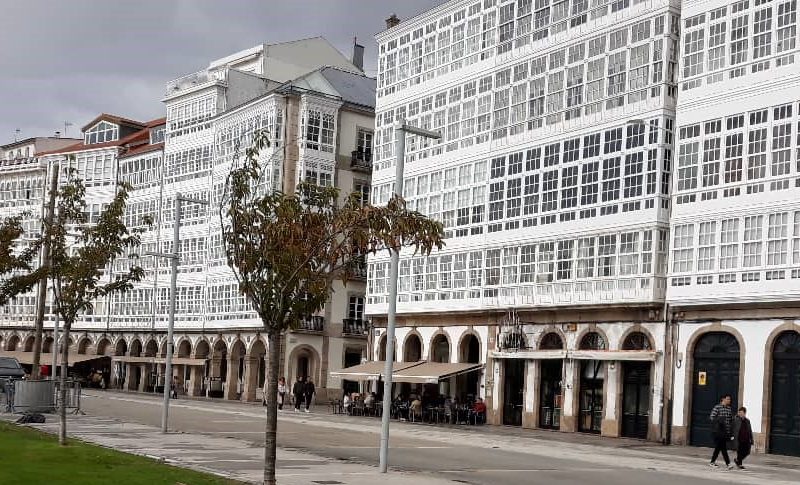Well, here we are, eight months stretches before you a seemingly long time and just like that, it’s all over. No fanfare, no fiesta just hugs and farewells from the teachers and big love from the students.
Being an Auxiliaries de Conversáción in Spain, is an interesting and rewarding experience that allows you to immerse yourself in another culture and provides you with the opportunity to travel and to explore Spain and other parts of Europe.
Arriving in a new country when you don’t know a soul and can’t speak the language can be a little daunting. My basic grasp of the Spanish language was more basic than I thought, throw in a Southland accent and no one could understand me. But you plod along and get by eventually, so here’s a few things I’ve learnt finding my feet as an Auxiliaries de Conversáción.
Contact your school ASAP
Schools close from mid-June until sometime in September so it pays to email your allotted school as soon as you receive your Nombriemente (letter of offer), and hopefully you will hear back from them before they shut down.
If you are in a rural placement, ask about transport to and from the school. In my experience there is little to no public transport to rural schools, but many teachers live in the nearest large town or city and commute daily, so it is possible to get rides to and from. This does mean you can be at the school for a lot more hours than you are actually in class and a lot of waiting around for your ride home. Take a book or something to keep you occupied, if you are in a rural school there is no guarantee that the WIFI is very good.
Remember to check out the school’s website to find out the school terms for your region and regional national holidays. I say this because sometimes you don’t know when you will have 3, 4 or even 5 days off straight. It’s an opportunity to plan a trip and go exploring.
Paperwork

Having a valid Visa is only a start. When you arrive in Spain you have 30 days in which to apply for your residency or student Visa. Don’t get too stressed about the timeframe because if you have started the process you are generally okay. It can take a week or even a few months. In my case it was the few months and if like me you just want to get it done it can be a whole lot frustrating.
Different people I’ve talked to have had different experiences of this process, but I do recommend you go armed with all the paperwork you think you need and some you’ve not thought about. Once again, don’t stress too much because this is Spain and even though it feels very bureaucratic, Spanish people are innately pretty laid-back, we are seriously only challenged because of the demanding attitudes we bring with us.
When applying for your Tarjeta de Identidad de Entranjera (TIE), it’s not just any Police Station that will do, so find out exactly which is the right one in your location. Here it’s the Police Headquarters of Galicia, Av. Porto da Coruña 7, La Coruña.
Before you apply for your TIE you will need a certificado de empadronamiento, which is your proof-of-address. This is issued by the local council and for this you will need to take along:
- Official identification such as your Passport, with a copy of the visa page, your NIE and arrival stamp
- A recent utility bill and copy of your rental agreement (I didn’t have either so needed to get a formed signed by my landlady, along with one of her utility bills and her ID card).
- Proof of fee payment (this fee is paid at the bank, using Form 790 from the council)
- Your nombriemente (letter of offer).
Once you have your proof of address, you need to take this, your TIE application form, passport, letter of offer and two passport-sized photos to the Police Station. When you’ve been approved and thumb-printed, you will get a confirmation letter and then you wait a month to go back to the Police Station to collect your TIE card.
The second thing you need to do is open a bank account, with a Spanish Bank, so you can be paid. Arm yourself with all the above documentation and this ‘should’ be reasonably straight-forward.
Resources to bring
Resources to take will definitely depend on whether you end up in a Primary, High School or in a Language School. Worksheets are great if you are planning to take on private lessons but more often than not, parents just want you to converse with their children to help improve their conversational English.
I was at a primary school so bought with me pencils, stickers, books and stencil sets. Have a USB with sketches for colouring, put together a presentation on your country, include photos and cultural information. I also did a comparison between the region and back home pointing out differences and similarities.
Connect with other Auxiliaries

Search for Auxiliaries groups on Facebook, there are many different groups and you should find one is specific to your location. WhatsApp is popular here so ask on the FB group if there is a WhatsApp group in your area, it’s a where you learn of private tutoring opportunities, social gatherings or to even find accommodation or flatmates. Auxiliaries who have been here a while are really good at providing advice and helping out us newbies.
